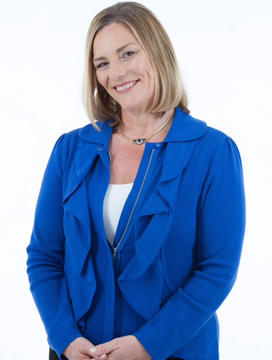Podcast Spotlight: Donnica Moore ’81 Cuts Through Stigma, Shares Expertise on Women’s Health

Becoming Dr. Donnica
“When I was 11, I was diagnosed with pretty severe scoliosis, which is a curvature of the spine. I just remember the second that I was told the diagnosis, my brain immediately went to, ‘Well, this is going to make me a better doctor.’ I was on a path. I always thought I wanted to be an orthopedic surgeon but when I started at Princeton, only 25 percent of the students were female. In all my conversations with my female friends about anything biological or gynecological or sexual, they would all say to me, ‘Oh you should become a gynecologist. We need women gynecologists.’ Of course none of us had women gynecologists in those days. So that really influenced me.”
THE PLAYLIST
Three more podcasts to check out this month
1. Princeton sociology professor MATTHEW DESMOND’s research on America’s eviction crisis is the basis of a four-part On the Media series called “The Scarlet E.”
2. HEATHER ANN THOMPSON *95, a historian at the University of Michigan, discusses education for prisoners on The Takeaway.
3. GRANT WAHL ’96 hosts the debut season of Throwback, a Sports Illustrated podcast. The documentary explores the historical impact of the 1991 U.S. Women’s World Cup soccer team.
Craziest experience in the ladies’ room
“When I was a fourth-year medical student, I was on a real date with a real man who was employed — so not a medical student — and we went to a really nice restaurant. I was post-call and I was exhausted, and I literally fell asleep at the table — face plant in the soup. I was mortified. I thought that was just the worst thing that could possibly ever happen in life. I went to the ladies’ room to get cleaned up and there was a woman on the floor having a grand mal seizure. I had to get out of my pity party really quickly and play doctor in the ladies’ room. I think that was the first time that it ever impressed upon me that being a physician is a 24/7 job, that you’re a doctor, if you’re in the ladies’ room or you’re in the hospital.”
Health issues, broadly defined
“We talk about all the typical women’s health diseases, disorders, and conditions, but we also talk about relationships and sex and social health issues like gun violence, suicide, parenting, stress management. Anything that’s stigmatized, I give high priority to, so mental health, depression, anxiety, panic attacks, suicide, body odors, conditions that have weird discharges, constipation. We’re focused on the health issues which don’t get enough attention, that women are generally embarrassed to talk about in public. We prioritize whatever happens to be timely, but also whoever I happen to run into, or am able to schedule who’s fabulous.”
Opening up
“I try to relate. I’m a member of the Class of ’81, and even though I’m a baby, I’m already 58 years old. So at this point in my life, I’ve had a lot of life experience. And what do we do when we talk to each other in the ladies’ room? We share. You talk about your thing, I talk about my thing. And that’s what we try to do in this podcast. I didn’t want this to be a lecture. I didn’t want this to be me interviewing somebody who just talks about their topic. The concept was not just to talk to people who were quote-unquote experts because they’re doctors or researchers in that field, but to talk to women who were experts because they had ‘been there, done that’ experience. I want to communicate that above all, women are multidimensional.”
Not only a girls club
“This is the only ladies’ room that men are welcome into. Men have said to me for the past 40-plus years, ‘What do you women talk about in there all the time?’ And men are always joking about how women generally go to the restroom with another woman and that it generally takes so long. What I always say to our male listeners is, ‘Here’s an opportunity for you to learn what we do talk about.’ I don’t collect demographic data, but I know we have a lot of male listeners because they send me questions, and I welcome questions from all my viewers.”
Lessons learned
“I want people to get over their embarrassment about talking about health and bodily functions, and there’s no such thing as a stupid question when it comes to your health. I think we’ve stigmatized too many of these issues. I want people to know that the good news is there is generally help for most problems that you might have; the important thing is accessing that information. One thing that I have really enjoyed about doing this podcast is that it’s an opportunity for me to connect in a deeper, more intimate way with people. Most of our podcasts are over 30 minutes long, so that really gives me the advantage of having a much more in depth conversation than I generally do in any other format, including in the actual ladies’ room. In actual ladies’ rooms, I don’t actually spend 30 minutes or more in there, even though, to my partner, it may seem like I’m in there for hours.”
Interview conducted and condensed by Anna Mazarakis ’16
Alumni, if you have a podcast that you’d like to share with PAW readers, please email us at paw@princeton.edu.











No responses yet